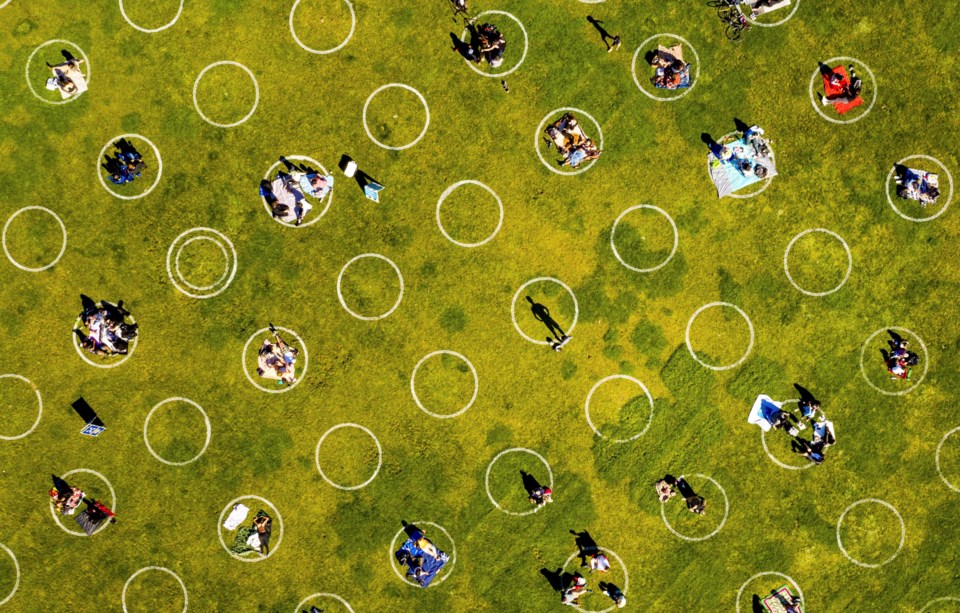Masks and social distancing can help control the coronavirus but hand washing and other measures are still needed, a new analysis finds.
Researchers concluded single-layer cloth masks are less effective than surgical masks, while tight-fitting N95 masks provide the best protection. A distance of one
Eye protection such as eyeglasses or goggles can help too. None of the strategies work perfectly and more rigorous studies are needed, according to the analysis published Monday.
With the coronavirus still new, health officials have relied on studies involving its cousins, severe acute respiratory syndrome and Middle East respiratory syndrome. The findings come from a systematic review of 44 studies, including seven involving the virus causing COVID-19. The remaining focused on SARS or MERS.
(Below: Dr. Deena Hinshaw, Alberta’s chief medical officer of health, demonstrates how to use a non-medical mask.)
“This puts all that information clearly in one place for policymakers to use,” said study co-author Dr. Derek Chu of McMaster University in Hamilton, Ont.
Still to come are results from more rigorous experiments in Canada and Denmark that are testing masks in randomly assigned groups of nurses and the general public. Until then, the new study in the journal Lancet provides reassurance that masks do help.
Public health officials have given conflicting advice about masks.
The World Health Organization, which funded the new analysis, has said healthy people need to wear a mask only if they are caring for a person with COVID-19. The U.S. Centers for Disease Control and Prevention wants everyone to wear at least a cloth mask when grocery shopping or in similar situations where keeping distance is difficult.
___
The Associated Press Health and Science Department receives support from the Howard Hughes Medical Institute’s Department of Science Education. The AP is solely responsible for all content.
Carla K. Johnson, The Associated Press



